44 how many different hazard labels are there for class 4
PDF DOT CHART 16 Hazardous Materials Markings,Labeling and Placarding Guide • The appropriate hazard class or division number must be displayed in the lower corner of a primary and subsidiary hazard label [§172.402(b)]. • For classes 1,2,3,4,5,6, and 8, text indicating a hazard (e.g., "CORROSIVE") is NOT required on a primary or subsidiary label. The label must otherwise conform to Subpart E of Part 172 [§172 ... 9 Classes of Dangerous Goods 🛳️ Hazardous Materials - Shippo Division 1.3: Substances and articles which have a fire hazard and either a minor blast hazard or a minor projection hazard or both Division 1.4: Substances and articles which present no significant hazard; only a small hazard in the event of ignition or initiation during transport with any effects largely confined to the package
10 Types of WHMIS Labels and Their Symbol Meanings Here are the ten different types of WHMIS labels and their symbol meanings: Type #1: Flame symbols You may recognize this common safety symbol, which features a flame and a line underneath it. This WHMIS label's meaning indicates that the product is a potential fire hazard, meaning that it can ignite easily.

How many different hazard labels are there for class 4
Marking & Labeling Your Shipment | Federal Aviation Administration Marking means a descriptive name, identification number, instructions, cautions, weight, specification, or UN marks, or combinations thereof, required on outer packagings of hazardous materials or dangerous goods. Must be durable, in English, and printed on or affixed to the surface of a package or on a label, tag, or sign. Hazardous Materials Classification - Environmental Health and Safety Hazardous Materials Classification. There are multiple sources for identifying the DOT/IATA defined hazards of a material: Shipping papers. Safety Data Sheets (SDS) Container labels and markings. It is also a good practice to search through the hazardous materials table listed in our references section. You can quickly find your material or its ... Hazard Class Labels - DOT Hazmat Labels for Hazmat ... - Labelmaster Quickly find the right label for your shipments with our easy-to-use Label Finder. Hazard Class 1 Hazard Class 2 Hazard Class 3 Hazard Class 4 Hazard Class 5 Hazard Class 6 Hazard Class 7 Hazard Class 8 Hazard Class 9 Drum And Cylinder Labels
How many different hazard labels are there for class 4. DOT Hazard Classes Explained - Sharps Compliance Blog Hazard Class 4 - Flammable Solids These are the three divisions of flammable solids along with a common example for each: Flammable solid (4.1) (e.g., match sticks), Spontaneously combustible material (4.2) (e.g., oily rags) Dangerous when wet (4.3) (e.g., magnesium fire starter) Hazard Class 5 - Oxidizing Substance & Organic Peroxide DOT Hazard Classes | Hazmat University - News and Info Hazard Class 4 - Flammable Solids This hazard class includes three divisions of hazardous materials: 4.1 Flammable solid (e.g. match sticks and desensitized solid explosives) 4.2 Spontaneously combustible material (e.g. Aluminum borohydride, oily rags) 4.3 Dangerous when wet material (e.g. Barium and lithium metal) WHMIS 2015 - Hazard Classes and Categories : OSH Answers Each hazard class contains at least one category. The hazard categories are assigned a number (e.g., 1, 2, etc.) Categories may also be called "types". Types are assigned an alphabetical letter (e.g., A, B, etc.). In a few cases, sub-categories are also specified. Subcategories are identified with a number and a letter (e.g., 1A and 1B). What Are the 4 Different Arc Flash PPE Categories in NFPA 70E? Additional PPE: Hard Hat, Eye Protection (Glasses, Goggles), Hearing Protection (inserts), Leather Footwear PPE Category 4: Minimum Arc Rating 40 cal/cm2 The final PPE Category requires AR clothing with a minimum rating of 40 cal/cm 2. Required Clothing: Arc Rated Flash Suit Jacket and AR pant or AR coverall with minimum arc rating of 40 cal/cm 2
How Many DOT Hazard Classes Are There? - natlenvtrainers.com Hazard Classes. DOT regulations have grouped hazardous materials into nine specific hazard classes. They include: 1. Explosives. Includes Divisions 1.1, 1.2, 1.3, 1.4, 1.5 and 1.6 eCFR :: 49 CFR 173.50 -- Class 1 - Definitions. 2. Gases. What Are The Nine Classes of Dangerous Goods? - DeltaNet There are 9 classes of dangerous goods and the class is determined by the nature of the danger they present: Class 1: Explosives. Class 2: Gases. Class 3: Flammable liquids. Class 4: Flammable solids. Class 5:Oxidising agents & organic peroxides. Class 6: Toxins and infectious substances. Class 7: Radioactive material. Understanding Shipping Labels and Placards for Radioactive ... - REMM The cardboard package in the foreground above has a Radioactive Yellow-III hazard label (square on point) AND a separate black text on white marking which says "Radioactive Material Type A Package, UN 2915. UN 2915 means "Radioactive material, Type A package [non-special form, non fissile or fissile-excepted") Class 4 Dangerous Goods Flammable Solids etc - ChemSafetyPro.COM Class 4 dangerous goods include flammable solids, substances liable to spontaneous combustion and substances which, in contact with water, emit flammable gases. There are three sub-divisions: Division 4.1: Flammable solids Division 4.2: Substances liable to spontaneous combustion
Hazardous Materials Markings, Labeling and Placarding Guide (DOT Chart ... Hazardous Materials Markings, Labeling and Placarding Guide (DOT Chart 16) usdot-chart-16-10-24-2017.pdf (195.86 KB) Hazardous Materials Markings, Hazardous Materials Warning Labels, Hazardous Materials Warning Placards, General Guidelines on Use of Warning Labels and Placards. DOT Hazard Classes - International Association of Fire Chiefs Class 3 - Flammable liquids (and Combustible liquids [U.S.]) Class 4 - Flammable solids; Substances liable to spontaneous combustion; Substances which, on contact with water, emit flammable gases Division 4.1 Flammable solids, self-reactive substances and solid desensitized explosives Division 4.2 Substances liable to spontaneous combustion The Different GHS Classification Categories - Texas Label Printers There are also different types including oral, dermal, gases, vapors, dusts, and mists. Skin Corrosion and Irritation - Under the GHS, there are three categories for skin corrosion and irritation. Category three is mild irritants. Category two covers those classified as irritants. Category one is corrosive, which is the most hazardous. GHS Labeling Requirements: The Definitive Guide [2021 Update ... - Luminer However, the GHS takes into consideration that, sometimes, it's not possible to keep workers safe with only these six label requirements, which is why it also allows for supplemental information. 1. Product Identifier. This requirement identifies the actual hazardous chemical inside the container.
GHS Hazard Classification: Everything You Need to Know - ERA Environmental Hazard Class. Associated Hazard Category . Explosives. Divisions 1.1-1.6 (with 1.1 being the most hazardous, 1.6 the least hazardous) Flammable gases. Categories 1 and 2. Flammable aerosols. Categories 1 and 2. Oxidizing gases. Category 1. Gases under pressure. 4 Groups include: Compressed gas, Liquefied gas, Dissolved gas, and Refrigerated ...
Understanding HAZMAT Placards | ArcBest Class 2 — Gases 2.1: Flammable gases 2.2: Nonflammable gases 2.3: Toxic gases Class 3 — Flammable and combustible liquids Class 4 — Flammable materials 4.1: Flammable solids 4.2: Spontaneously combustible 4.3: Dangerous when wet Class 5 — Oxidizer and organic peroxide 5.1: Oxidizing substances 5.2: Organic peroxides Class 6 — Poisons
Dangerous goods classes and hazard labels - Civil Aviation Safety Authority Class 4 flammable solids These are substances that can spontaneously combust and substances, that when they come into contact with water or emit flammable gases. Class 4 has 3 divisions: Division 4.1 - flammable solids such as: hexamine solid fuel tablets for camping stoves self-reactive substances desensitised explosives
PDF System for the Identification of the Hazards of Materials for ... - NFPA How does the 704 label differ from other hazardous material labels? There are several widely used systems for labeling hazardous materials. Each has a specific purpose and it is ... indicating a minimal hazard, to four (4) indicating a severe hazard. ... Section 4.2.3.3 of NFPA 704 provides three different methods to rate multiple chemicals. In ...
Hazmat Labels, Hazmat Placards, and Hazmat Markings - Labelmaster Hazard Class 4 - Flammable Solids Hazard Class 5 - Oxidizing Substances, Organic Peroxide Hazard Class 6 - Toxic Subtances and Infectious Substances Hazard Class 7 - Radioactive Material Hazard Class 8 - Corrosives (Liquids and Solids) Hazard Class 9 - Miscellaneous Hazardous Materials Also try Labelmaster's Label Finder SM and Placard Finder SM
Dangerous Goods Labels Class 4 - Labelident This category includes dangerous goods class 4 labels - with three subcategories: Class 4.1 - flammable solids, desensitized, explosive materials; Class 4.2 - self-igniting materials; Class 4.3 - materials that create flammable gases in contact with water.
DOT Labeling Requirements: When Does a Hazmat Package Need Labels ... Hazard Class/Division: The materials hazard class or division number must appear at the bottom of the DOT label and be at least .25 inches (6.3mm) tall but not more than .5 inches (12.7mm) Text or wording on the label: When text appear on labels they must be at least .3 inches (7.6mm) in height. Hazmat that is Spontaneously Combustible or ...
The Nine Classes of Hazardous Materials - Hazsim This covers liquids such as gasoline, Diesel, kerosene, and many others. Class 4: Flammable solids; Substances liable to spontaneous combustion; Substances which, on contact with water, emit flammable gases. This class seems to cover quite a bit of ground when it breaks down into its divisions.
Classes 1-9 of dangerous goods explained Class 1 - Explosive substances and articles Class 2 - Gases Class 3 - Flammable liquids Class 4 - Flammable solids Class 5 - Oxidizing substances and organic peroxides Class 6 - Toxic and infectious substances Class 7 - Radioactive material Class 8 - Corrosive substances Class 9 - Miscellaneous dangerous substances and articles
Hazardous Material Classification - MLi Environmental They are defined by the hazardous materials classification (Class 3) as "liquids, mixtures of liquids or liquids containing solids in solution or suspension which give off a flammable vapor, and have a flash point at temperatures not more than 60.5°C or 141°F .". Flammable liquids are capable of posing serious threats because of their ...
Hazard Class Labels - DOT Hazmat Labels for Hazmat ... - Labelmaster Quickly find the right label for your shipments with our easy-to-use Label Finder. Hazard Class 1 Hazard Class 2 Hazard Class 3 Hazard Class 4 Hazard Class 5 Hazard Class 6 Hazard Class 7 Hazard Class 8 Hazard Class 9 Drum And Cylinder Labels
Hazardous Materials Classification - Environmental Health and Safety Hazardous Materials Classification. There are multiple sources for identifying the DOT/IATA defined hazards of a material: Shipping papers. Safety Data Sheets (SDS) Container labels and markings. It is also a good practice to search through the hazardous materials table listed in our references section. You can quickly find your material or its ...
Marking & Labeling Your Shipment | Federal Aviation Administration Marking means a descriptive name, identification number, instructions, cautions, weight, specification, or UN marks, or combinations thereof, required on outer packagings of hazardous materials or dangerous goods. Must be durable, in English, and printed on or affixed to the surface of a package or on a label, tag, or sign.
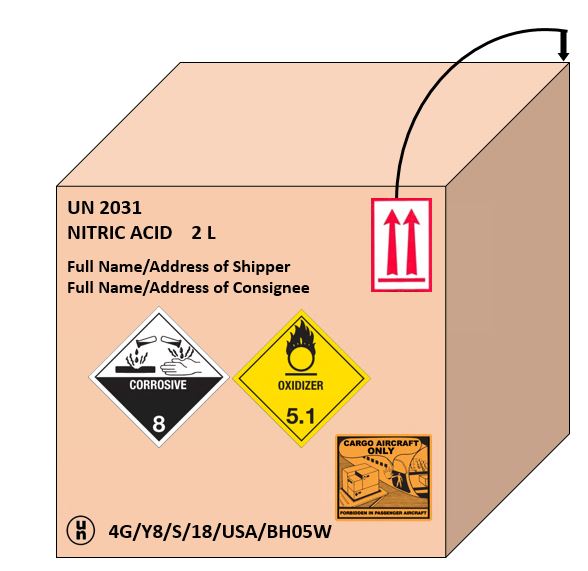


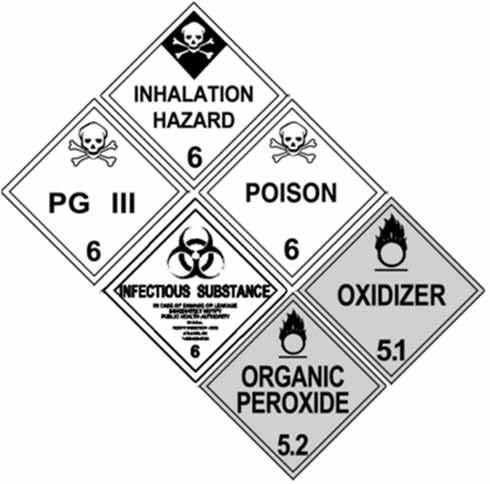

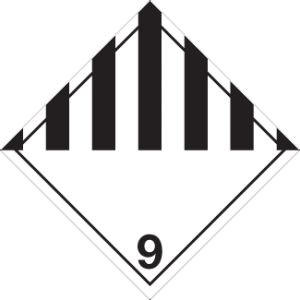



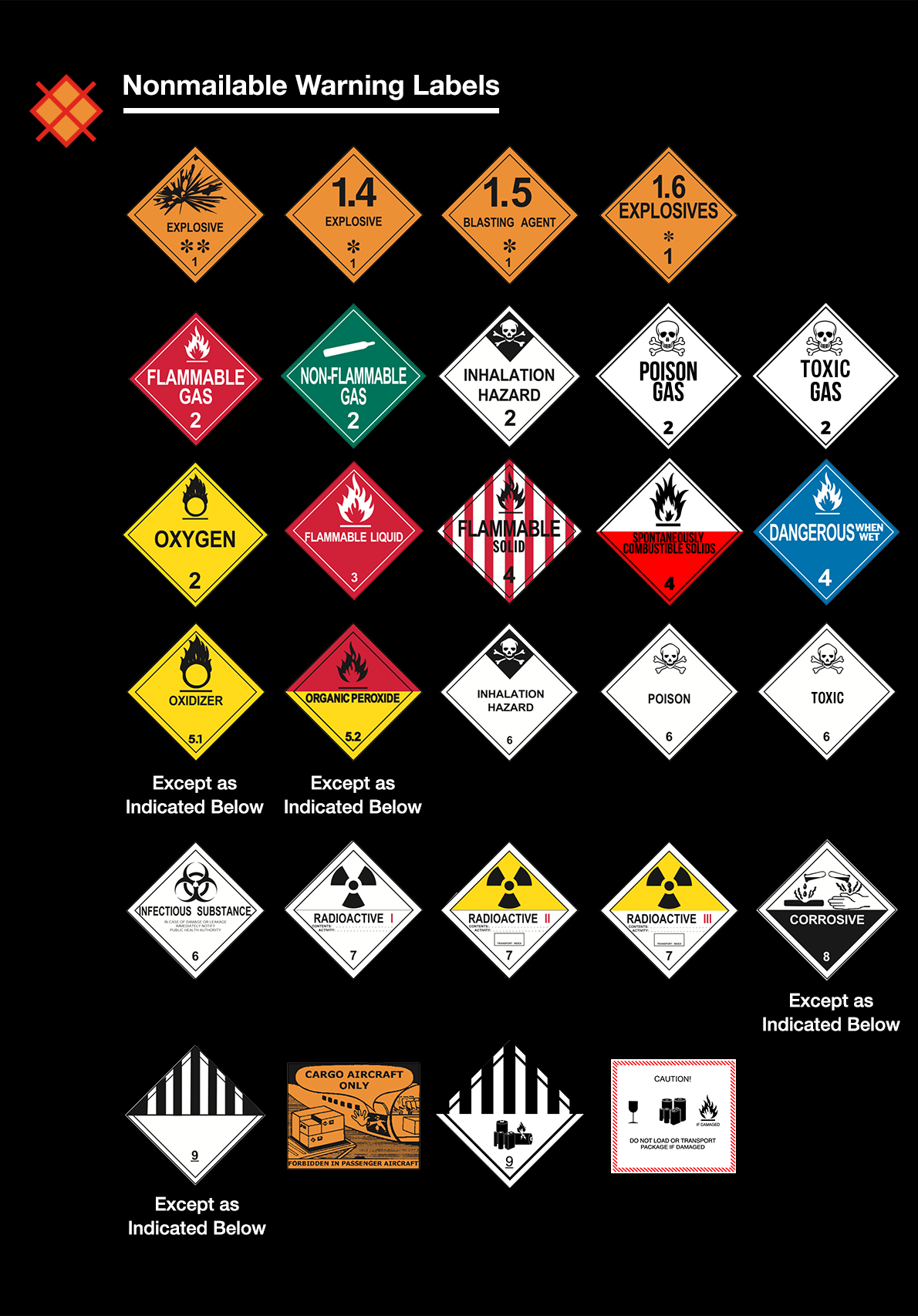

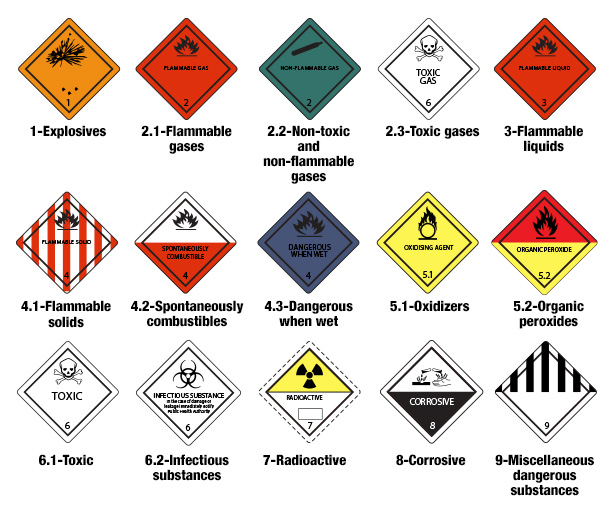

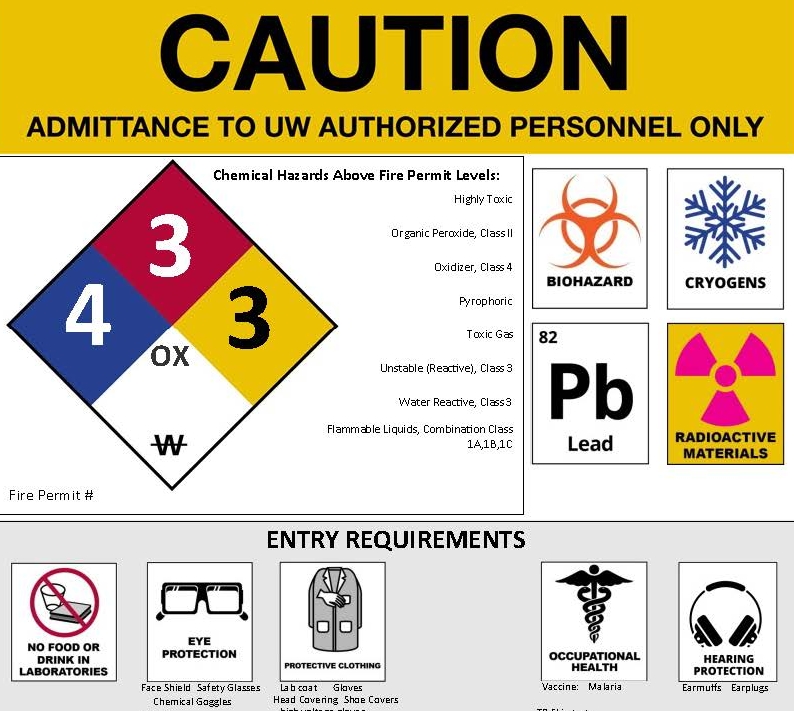
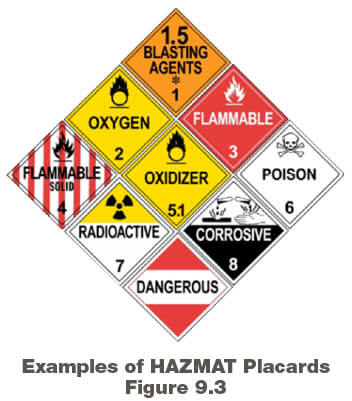


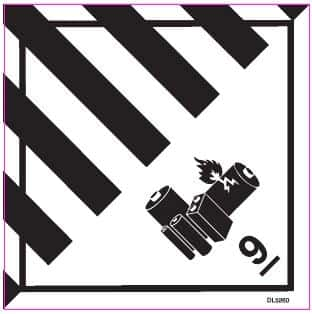


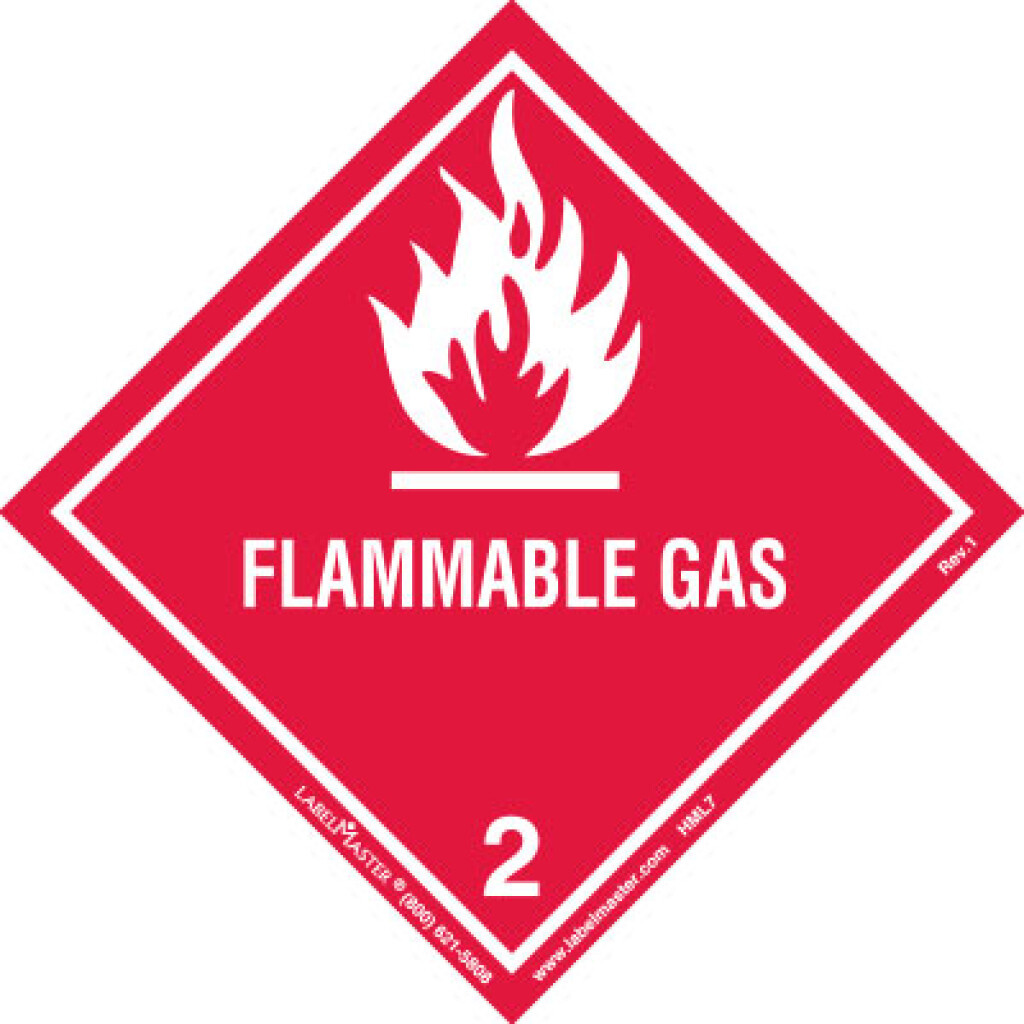

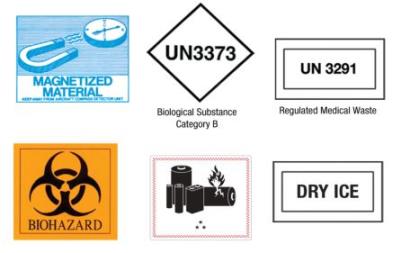


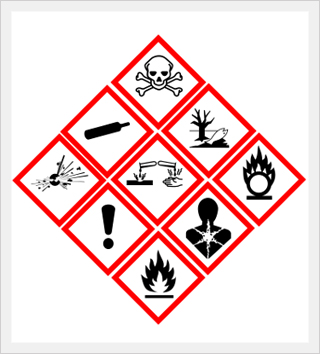

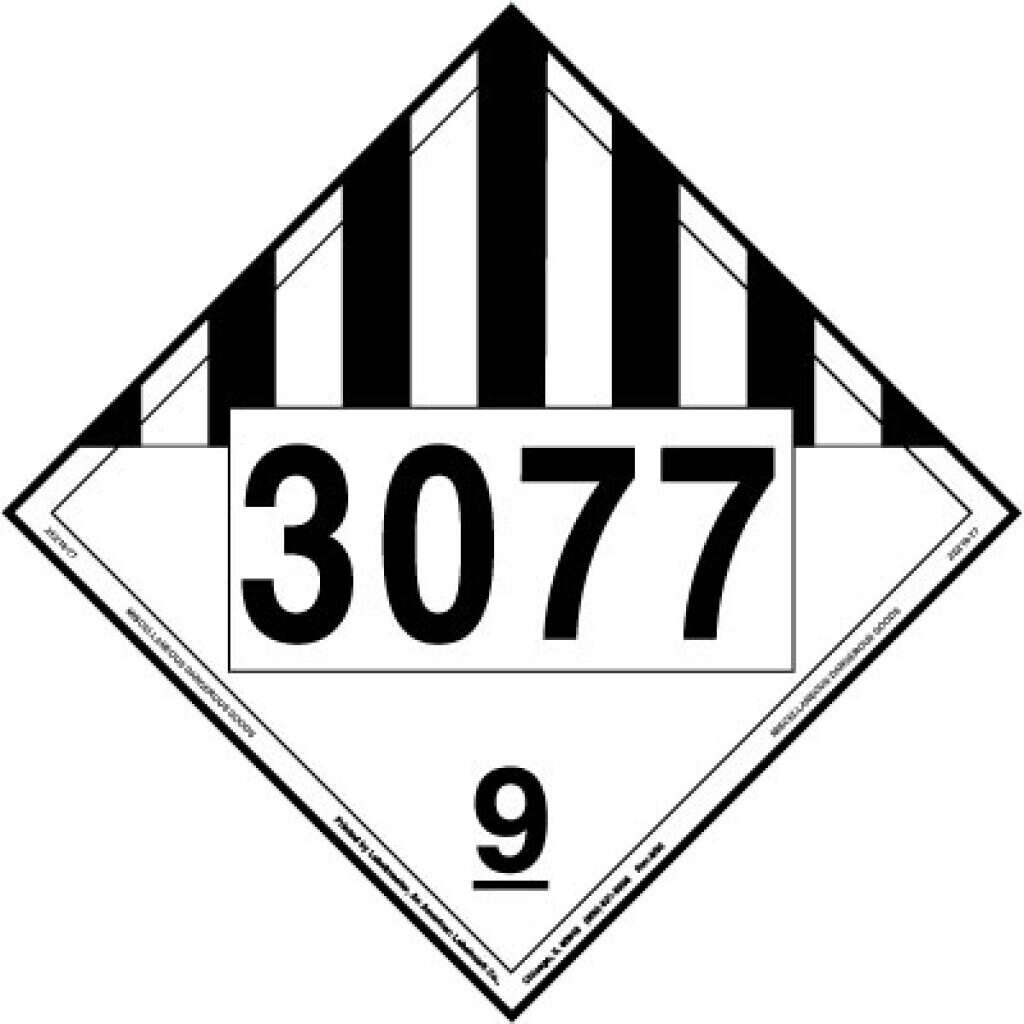
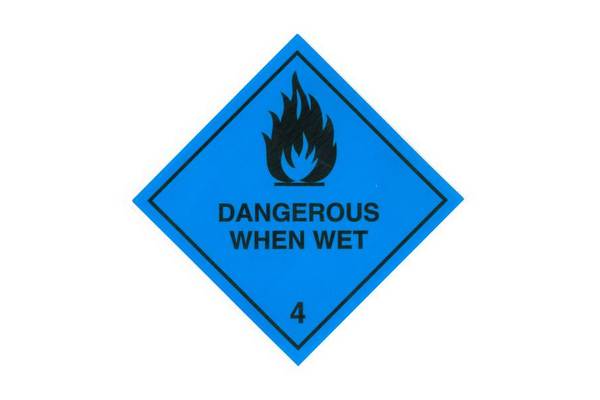

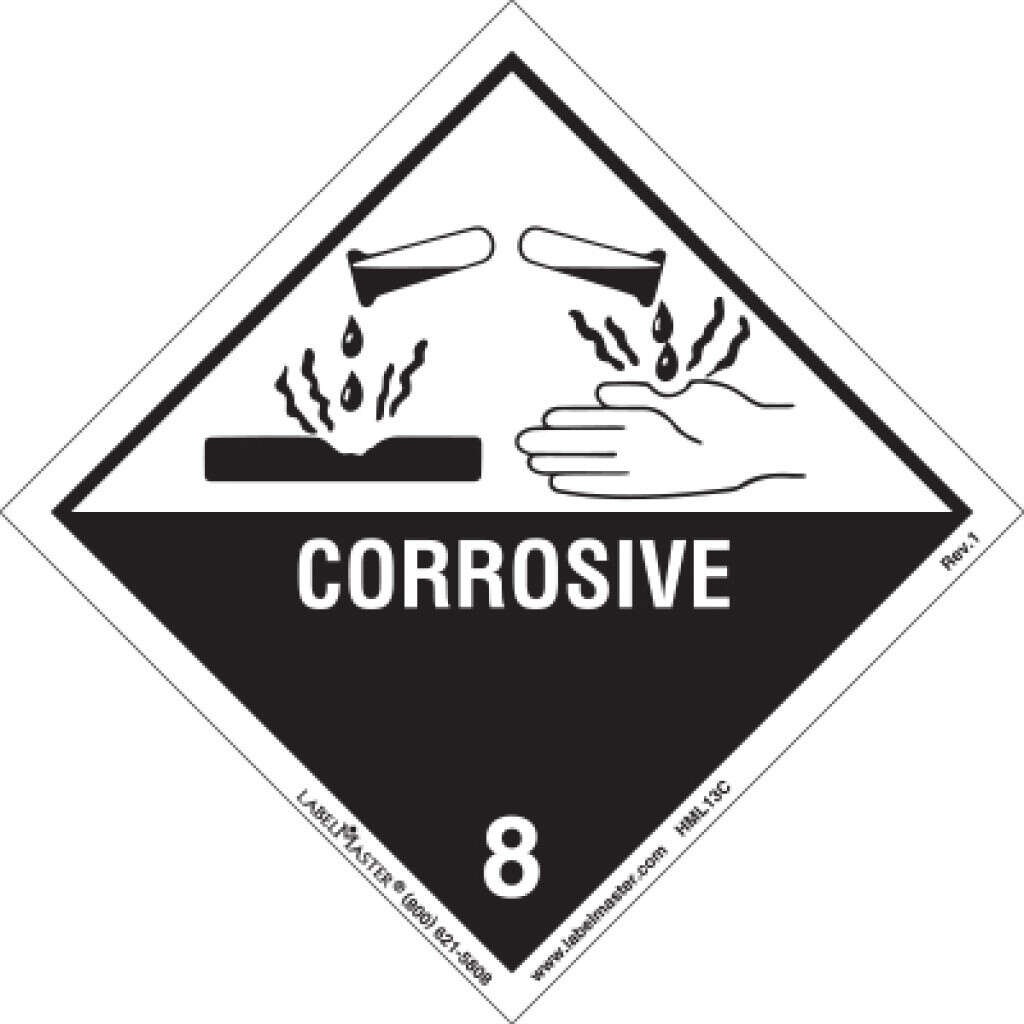
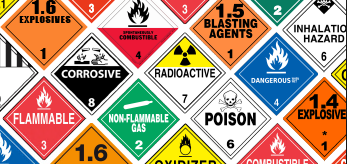




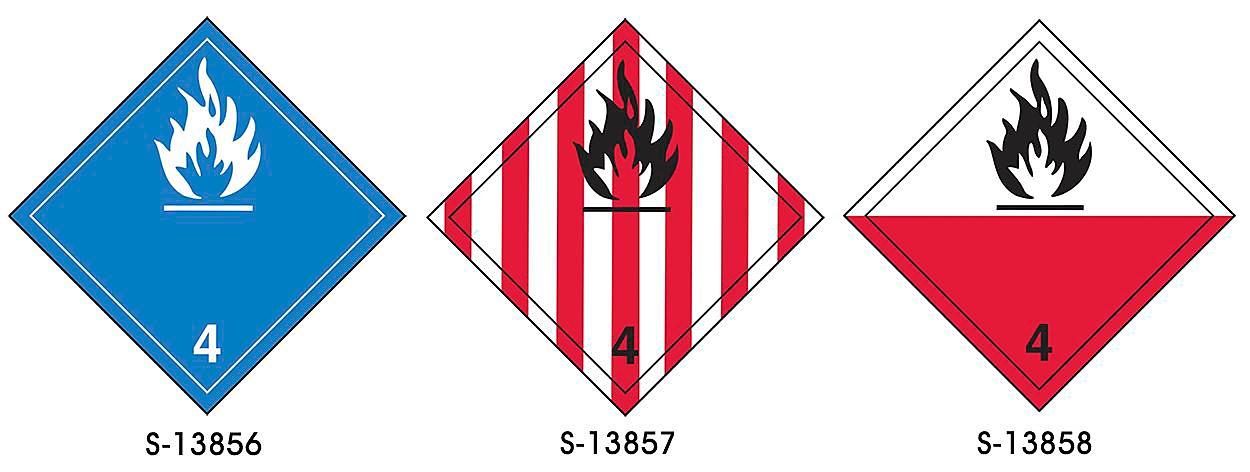



Post a Comment for "44 how many different hazard labels are there for class 4"